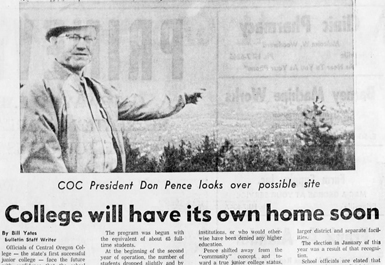
Education • Inspiration • Connection
Celebrating 75 Years of Opportunity
Founded in 1949, Central Oregon Community College — Oregon’s first community college — marks a major milestone of bringing higher learning, engagement and enrichment to the region
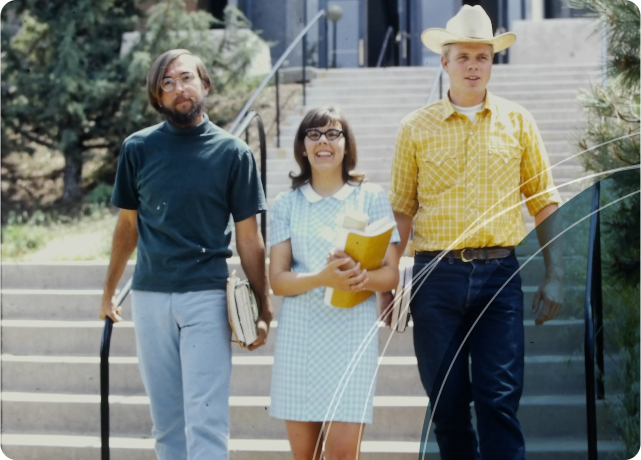
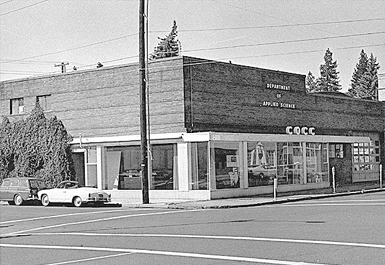
75th Anniversary Public Event
Save the Date: COCC’s 75th Anniversary Celebration
Friday, May 2, 2025 | 4-7 p.m.
Coats Campus Center, COCC Bend Campus
Join us as we celebrate Central Oregon Community College’s 75th anniversary.
We're marking this incredible milestone with an afternoon full of festivities, including inspiring speakers, historical photos, memorabilia and showcases of various College programs. There will be plenty of COCC history to explore, and, of course, no celebration would be complete without birthday cake.
This is a special opportunity to reflect on COCC’s rich history and its lasting impact on our community. Don’t miss it!
Location: Coats Campus Center, COCC Bend Campus, 2600 NW College Way, Bend, OR 97703.
Stay tuned for more details, and we look forward to celebrating with you!
A Brief History
They gathered at Bend High School for night sessions, in subjects like business and accounting, attending a college that didn’t yet have a permanent home — or a name. The date was Sept. 20, 1949, and Bend was holding its first-ever higher education classes, with 109 students enrolled. Oregon’s first community college was underway.
As Central Oregon began to grow, so did its college — becoming “Central Oregon College” in 1954, then adding a Nursing program that same year. In the coming years, the 10,000-square-mile College district was created (1962), the Bend campus opened on Awbrey Butte (1964) thanks to a generous land gift, and the name officially became Central Oregon Community College in 1967. The Redmond campus opened its doors in 1997, and the Madras and Prineville campuses followed in 2011, providing access to college-level education in communities across the district’s three counties — the largest district of its kind in the state.
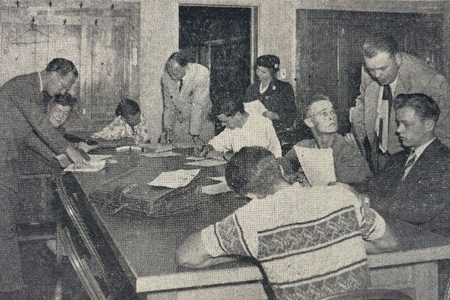
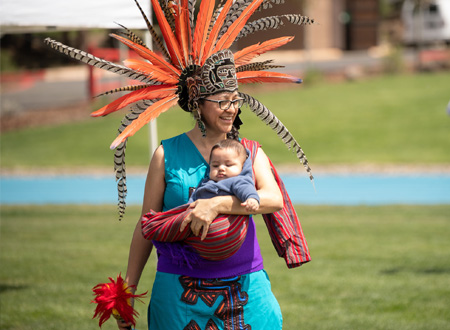
Tens of thousands of students have graduated from COCC since 1949; many more have taken credit or noncredit classes to gain a new skill or try a new experience. Today, COCC offers more than 70 unique academic programs and a wide scope of noncredit workshops and courses.
Longstanding COCC traditions like the Central Oregon Symphony, Chandler Lecture Series, Season of Nonviolence and Salmon Bake continue to engage the community, while every year new opportunities and events — topical and inspiring — add to Central Oregon’s cultural enrichment.
Campus to campus, there’s a lot happening on any given day. Over at the Redmond campus, for instance, Automotive Technology students are getting trained on vehicle scanners and electronic programming. In Prineville, a Business Administration class puts math basics up on the whiteboard. Aspiring storytellers at the Madras campus are sure to be discussing topics of plot and structure in a creative writing class. And in Bend, future chefs are learning the dicing essentials of the Culinary Arts. These and many other opportunities await at COCC.
From Gilchrist to Bend to Warm Springs, COCC strives to meet the goals of those it serves. The College is committed to being responsive to Central Oregon’s needs by providing affordable, accessible education for all, and by offering new technologies, trainings and opportunities that contribute to the region’s well-being. It’s a mission shared and supported by area schools, employers, agencies, contributors and taxpayers, and wouldn’t be possible without those enduring partnerships.
Thank you, Central Oregon, for 75 incredible years. COCC is honored to be a part of so many life journeys — dating back to 1949 — and is truly excited for what lies ahead.
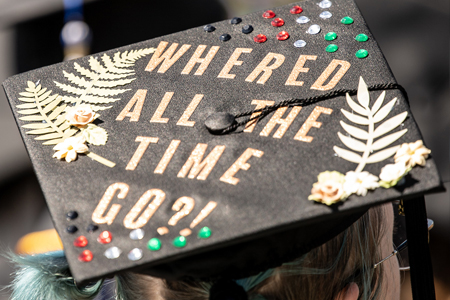
From the History Pages
Check out these features from past issues of COCC Magazine (PDF downloads):
- Talks of Wonder (2024, Page 3)
- A Musical Homecoming (2023, Page 3)
- Inside The Broadside (2022, Page 3)
- Raising a Mascot (2020, Page 3)
- John Overbay (2020, Page 11)
- A Tale of Two Stickers (2019, Page 3)
